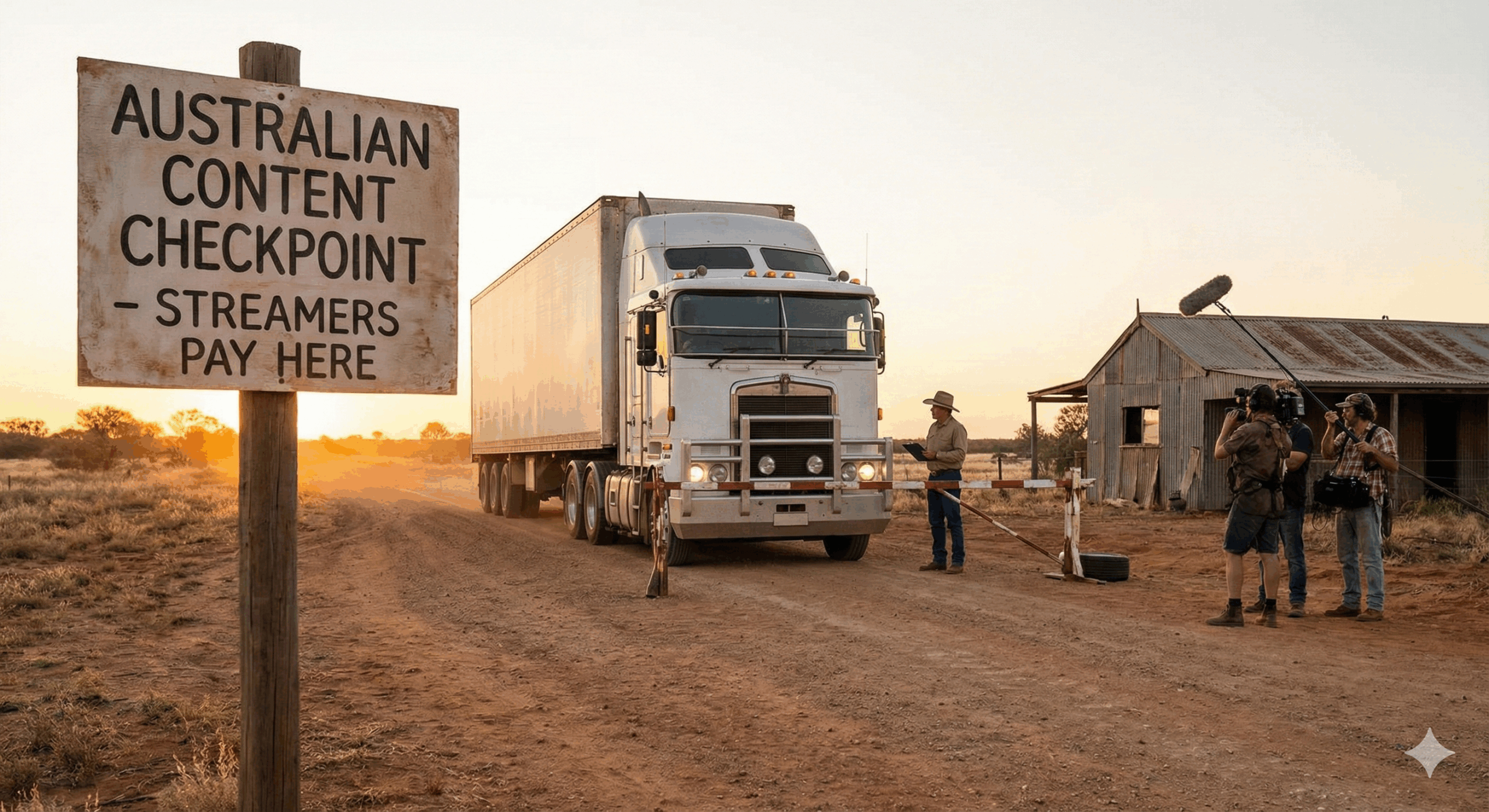If Matthew Deaner had a dollar for every flight he took to Canberra over the last ten years, Screen Producers Australia (SPA) wouldn’t need a levy. And they could probably self-fund a surprise return of Territory!
But after a decade of lobbying, endless inquiries, and enough green papers to forest a small state, the ‘Make It Australian’ campaign finally crossed the finish line.
As of Thursday, with the passing of the Communications Legislation Amendment Bill 2025, the era of the digital Wild West officially ended. The streamers are no longer just tourists visiting our shores; they are tenants.
And the landlord finally decided to collect rent.
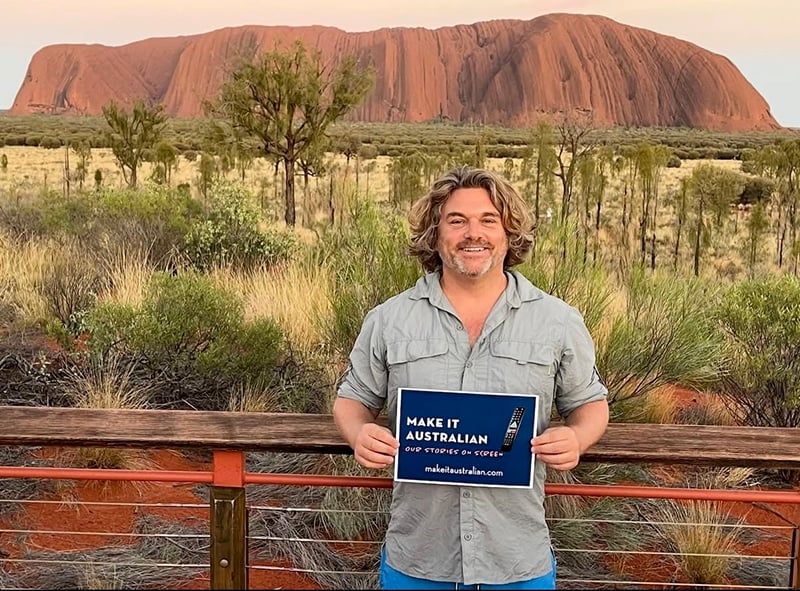
Matt Deaner taking the ‘Make it Australian’ message across the country
The Compromise: Floors vs. Ceilings
Of course, in true Canberra fashion, the victory is complicated.
The headline number is a quota of 10% of Australian expenditure (or 7.5% of gross revenue, depending on which accountant you ask). Is it the 20% the producers wanted? No.
Is it the 0% the streamers hoped to maintain while pinky-promising they love Aussie content? Also no. It’s a classic compromise where nobody is entirely happy, which might mean the legislation is about right.
Richard Finlayson, joint CEO of production house Wooden Horse (The Clearing), offered a few sharp words to The Daily Aus when the government first floated the numbers:
“7.5% feels like a low bar when you consider that premium drama series are now costing between $25m to $50m. We’d hoped to see a higher percentage… like in France, where platforms are required to invest at least 20%.”

Richard Finlayson of Wooden Horse TV has been vocal on the proposed ‘floor’ for local spending
Finlayson’s comment cuts to the core worry. The industry fears the difference between a floor and a ceiling. The government designed the legislation to create a ‘floor’ for local spending.
But if we know anything about Silicon Valley efficiency, a regulatory floor quickly becomes a corporate ceiling. Why spend 15% on local drama when the algorithm says you only need to hit 10% to avoid a fine?
Speaking of fines, the penalties are eye-watering.
They can reach up to 10% of turnover. For a company like Amazon, that’s not a slap on the wrist; that’s a limb amputation and suggests that the government is actually serious. And the days of opaque data are gone.
A Starting Point for Regulation
SPA CEO Matthew Deaner, who led this fight since the beginning, was careful not to pop the champagne too early.
Speaking to Variety Australia after the bill passed, he framed it as a foundation stone rather than the whole building:
“It finally puts in place a strong starting point for a regulatory framework that responds to the enormous changes that digital streaming platforms have made to our industry dynamics and viewing habits.”
The most amusing subplot of the week, however, involved the geopolitical tantrums. We heard rumblings from the US Embassy and grumbles about ‘1950s protectionism.’
The bill passing despite the heavy breathing from Washington represents a rare win for Aussie culture over trade diplomacy.
Arts Minister Tony Burke leaned into this hard, noting in his official media release that, “We have Australian content requirements on free-to-air television and pay television, but until now, there has been no guarantee. With this legislation we’ll be able to ensure that no matter which remote control you’re holding, Australian stories will be at your fingertips.”
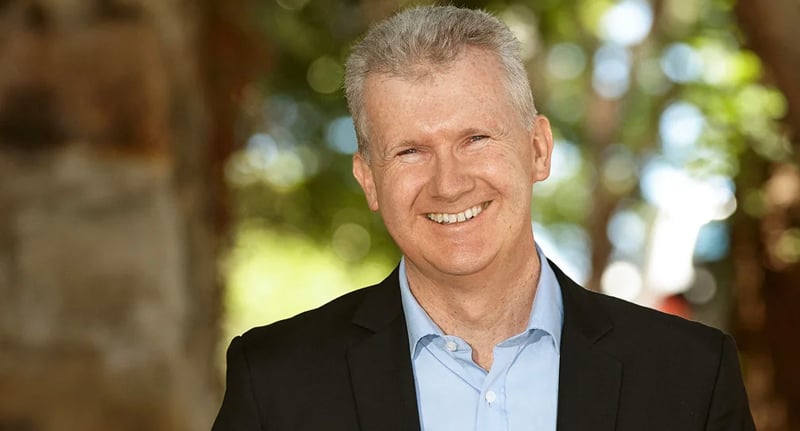
Tony Burke says Aussie stories will be at our finger tips
The Trojan Horse: A Win for the ABC
But the real Trojan Horse in this saga wasn’t the quota itself. It was the Senate deal-making.
While the commercial sector fixated on Netflix, the Greens quietly managed to extract an extra $50 million for the ABC, specifically earmarked for kids’ content and drama.
Greens Senator Sarah Hanson-Young didn’t miss the chance to claim the win, stating in a Greens media release on Thursday, “For decades, the ABC has been the heart of Australian storytelling. By strengthening its capacity to make more children’s and drama content, we’re ensuring that heart keeps beating strongly. This is a win for our kids.”
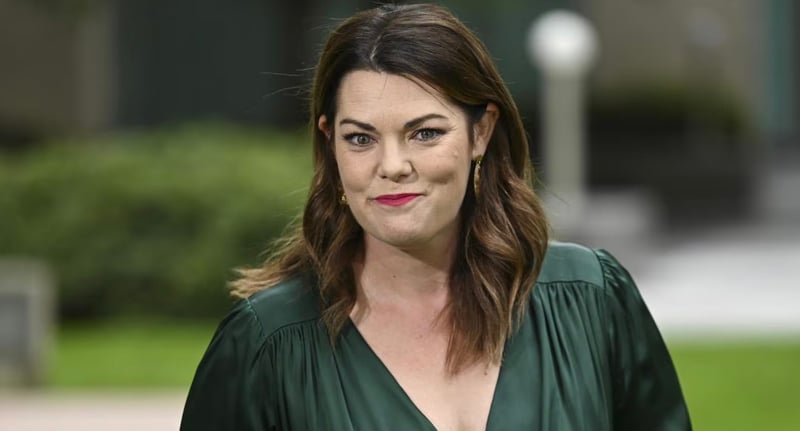
Greens Senator Sarah Hanson-Young with a $50m grin
In a grim media landscape, that represents a genuine coup. It ensures that while the streamers fight over the glossy, commercial hits, the public broadcaster has a war chest to make stuff that may not sell subscriptions in Seattle but creates demand in Dandenong.
The government dragged the streamers, perhaps not kicking and screaming but certainly grumbling and sulking, into the regulated world.
They enjoyed a good, long free ride. Now, they have to pay their way.
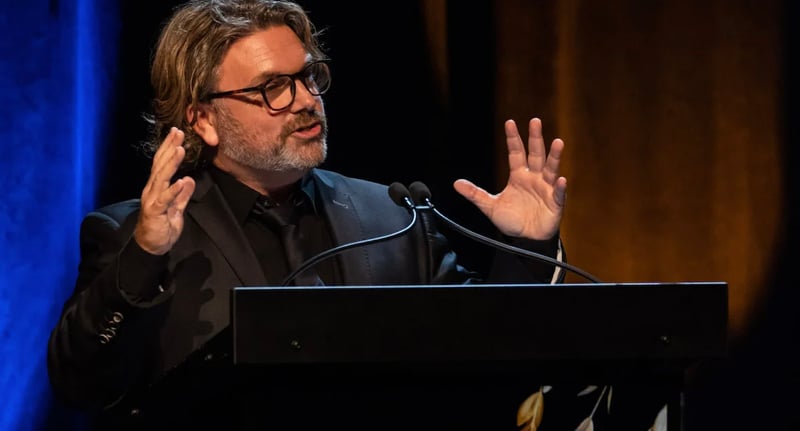
SPA’s Matthew Deaner
Sidebar: The Amendment Bill’s Winners & Losers
WINNER: Matthew Deaner (SPA) He played the longest game in Australian media. After years of rejection by Liberal and Labor governments alike, he finally got the ink on the paper.
LOSER: The ‘Trust Us’ Model For years, streamers argued they didn’t need regulation because they already invested voluntarily. That argument is now legally dead. The sheriff replaced the “gentleman’s agreement.”
WINNER: The ABC An unexpected $50m windfall for kids’ TV and drama is a massive result for the public broadcaster, which usually only hears about budget cuts.
LOSER: US Trade Lobbyists They pushed hard to kill this by arguing it violated free trade agreements. They lost. Canberra proved it can still say ‘no’ to American corporate interests when it wants to.
WINNER: Local Accountants The definition of ‘Australian expenditure’ will become the most debated topic in the industry. Expect a lot of creative accounting from the streamers to hit that 10% target without actually changing their business models.

